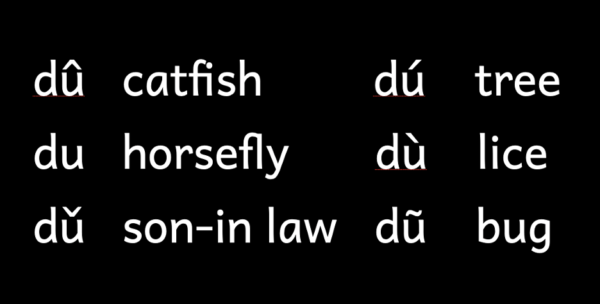What makes a tonal language so challenging?
The Turu people we live and serve among, speak a language that is tonal. In English, intonation may be added to affect meaning. Consider the following two sentences:
“Are we leaving now?” ending in a rising tone, would mark a question.
But the sentence,
“Are we leaving now?” ending in a low level tone, could mark a disapproval of what is about to happen.
Though intonation does add to the overall meaning, each of the four words still maintain a meaning that doesn’t change.
As we serve among the Turu people, we are tasked with translating God’s Word into their tonal language. For every word the Turu speak, one of six different tones are possible. While in our view, we may see the word, “du,” (below) as all the same word, the Turu would see them as entirely different. To them, the following six would seem to them as different as we would see, “bat, cat, hat, mat, rat, sat.” Consider the following in Turu:

Each of these words, “du,” have a unique meaning. The rising tone word for tree, would never have the same meaning as the falling tone for lice.
We always have to speak and listen really well. This doesn’t always come easy. We are so grateful for your continued prayers for us in this endeavor.
Leave a Reply
You must be logged in to post a comment.